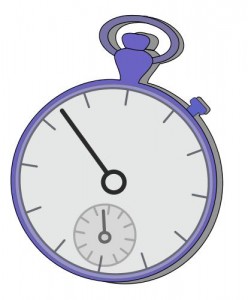As I go through life, sometimes I get reminders of things I already know but maybe got a little rusty on. Recently, I was reminded of the power of focus, as in what

you focus on tends to become more prevalent in your life. To be clear, I don’t believe in any sort of magic behind this, it’s more like having a clear focus drives you to make decisions that support that focus. For example, if you get clear and focused on losing 10 pounds you will make different choices than if you weren’t focused and make the weight loss more likely to occur. If you constantly talk about how bad the economy is, you’ll see signs of that everywhere. It’s like when a friend buys a new car in a model you’ve never heard of or seen and suddenly you see it everywhere.
Last week, an acquaintance pointed several people to someone’s blog saying it was a “must read” and “really funny.” The blog in question was written by a 27-year old single woman in search of love and marriage, but the topic and title was all about the bad dates and low-quality men she had met. I was immediately struck by how out of line with her stated goal publishing such a blog is. To be certain, seeking love and marriage is a worthy goal and even something to be blogged about. My concern with this particular blog is that she is putting time, energy and focus into remembering, chronicling and preserving the bad dates she had been on. Talk about putting your focus in the wrong place!
I have my own version of this mistake. As I talk about often, my husband and I are about 6 years into renovating our house, which looked like an abandoned drug den when we bought it. In the course of our renovations, I’ve had the misfortune to deal with a lot of bad contractors and very few good ones. For some reason, many people seem to want to hear the horror stories. I often find myself being goaded into regaling a crowd with my awful contractor stories. It took me a few years to realize it, but every time I allowed myself to be the entertainment, I would feel sucked right back into the bad emotional place those experiences put me in the first time around. As a result, I spent many more hours being upset by these bad experiences than was necessary. It took a few years, but I eventually got clear that entertaining other people was not as important as my well-being so now I have a full stash of ways to share that experience without being harmful to myself.
How can you apply this in your business? Do you focus too much on all the things you haven’t done instead of celebrating your accomplishments? Do you talk too much about how you have too few clients instead of what a delight your existing clients are? It’s important to acknowledge the gap between where you are and where you want to be, but watch your focus at the same time.
Have you fixed a focus mistake in the past? Tell me about it in the comments.






